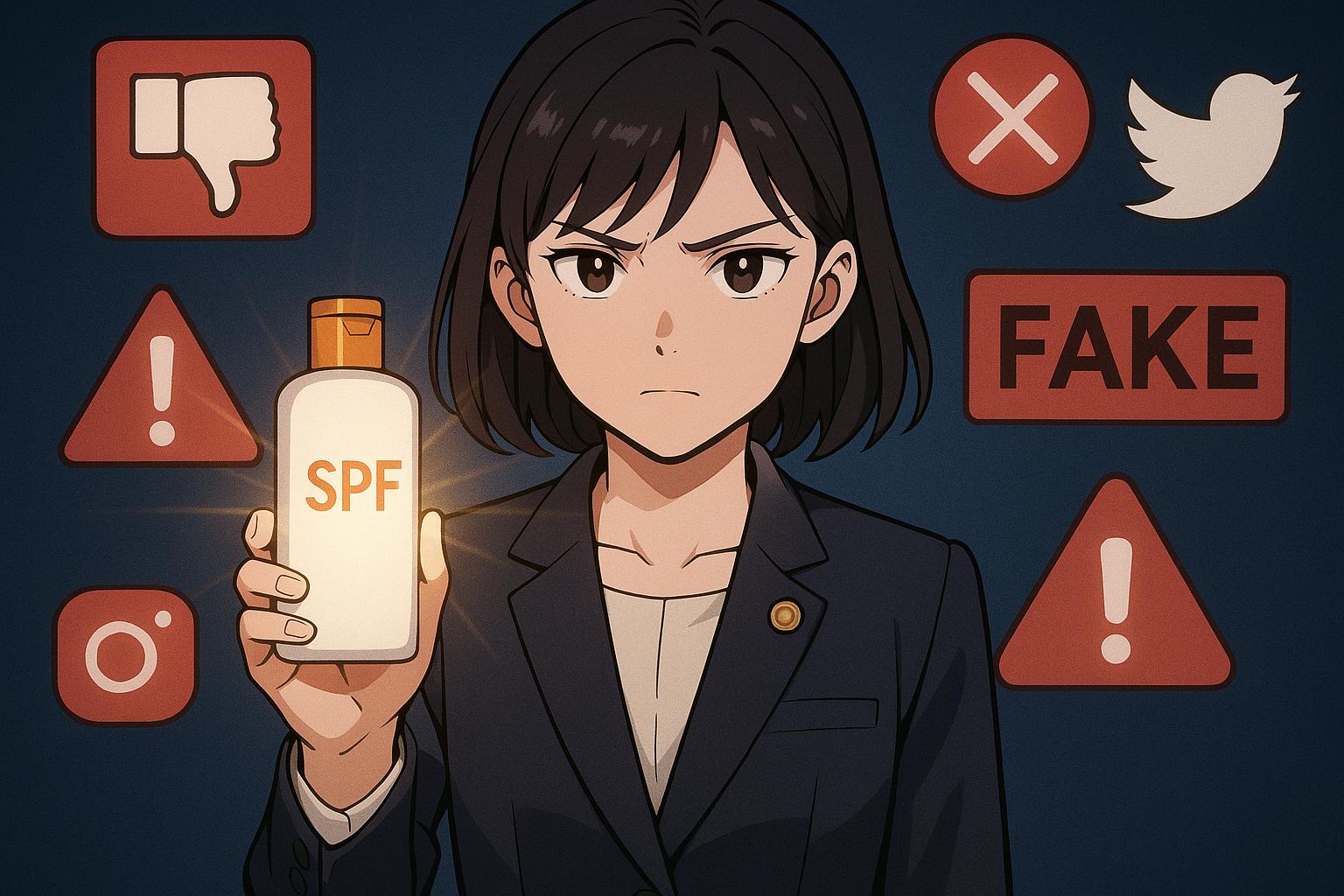The concerning rise of anti-sunscreen rhetoric among social media influencers is prompting a parliamentary inquiry aimed at curbing misinformation and enhancing public health. The inquiry will specifically target personalities on platforms like TikTok and Instagram who promote potentially hazardous tanning products, often with little regard for the health implications associated with their messages.
Recent viral trends have amplified this issue, with influencers asserting that the application of sunscreen can be likened to "rubbing cancer into your skin." Such statements reflect a worrying tide of disinformation, particularly as DIY sunscreen recipes circulate widely, often lacking scientific backing and efficacy against harmful UV rays. Experts warn that this misinformation not only misguides consumers but also aligns dangerously with rising skin cancer rates globally.
Labour MP Carolyn Harris, chair of the All-Party Parliamentary Group on Beauty and Wellbeing, has voiced her concerns regarding the public's understanding of ultraviolet (UV) dangers, stressing the urgent need for educational initiatives on responsible sun exposure. Harris highlighted the ongoing inquiry's intent to assess the risks of overexposure to sunlight while advocating for legislative support to ensure that the public receives accurate health messaging.
Acknowledging the exponential influence of social media in today’s society, the British Beauty Council supports the campaign, citing that misinformation runs rampant across media platforms with inadequate challenge. The council intends to present recommendations to the government and industry stakeholders next year, seeking to address the alarming health risks posed by misleading influencer content.
This inquiry is a response to the broader findings of the UK Parliament's Digital, Culture, Media and Sport Committee, which has previously investigated influencer culture and identified significant gaps in regulatory oversight. A notable report revealed that over three-quarters of influencers do not appropriately disclose paid promotions, effectively misrepresenting their content and potentially breaching consumer protection laws. This lack of transparency raises critical questions about accountability, especially when such endorsements can have life-altering health implications.
Moreover, a similar investigation by the Competition and Markets Authority recently flagged concerns around influencers not clearly identifying sponsored endorsements. The rise of influencer culture has coincided with a proliferation of unregulated, often harmful, beauty products and advice, highlighting a pressing need for enhanced regulatory frameworks to protect vulnerable demographics, such as children, who are increasingly drawn into this online ecosystem.
Currently, the inquiry will explore the need for strengthened powers for the Advertising Standards Authority, aiming to equip regulators with the means to tackle the dissemination of dangerous health misinformation. Alongside this, calls are being made to exempt sun protection products from Value Added Tax (VAT), which would potentially make them more affordable and accessible to the public.
As public health concerns mount and calls for regulatory reform increase, this parliamentary inquiry stands as a vital step in fostering a safer social media landscape. Empowering consumers with factual information and safeguarding them against misleading narratives that jeopardise their health could prevent more significant public health crises in the future.
The ongoing discourse underscores the critical intersection of social media influence, consumer protection, and public health, compelling stakeholders across sectors to act decisively in safeguarding community wellbeing.
Reference Map
- Paragraph 1: 1, 2
- Paragraph 2: 2
- Paragraph 3: 1
- Paragraph 4: 3
- Paragraph 5: 4
- Paragraph 6: 5, 7
- Paragraph 7: 1
- Paragraph 8: 1
Source: Noah Wire Services
